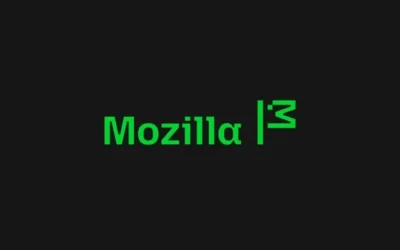GameStop (GME): A Bird’s Eye View
In the last two years, GameStop Corp. (GME) has captivated the attention of retail investors, hedge funds, and financial analysts alike. With a meteoric rise and subsequent fall in its stock price, the video game retailer has become a focal point in discussions about market dynamics, the role of social media in trading, and the intricacies of short selling. However, as the stock fluctuates and the volatility remains palpable, it’s crucial for investors to understand the inherent risks tied to GME. In this article, we’ll delve into three significant risks associated with GME and present a solid alternative for those looking to invest in a more stable environment.
Risk #1: Market Volatility
The first and foremost risk associated with GameStop is the extreme volatility of its stock price. At its peak in early 2021, GME experienced a surge to around $483 per share, largely driven by a short squeeze propelled by Reddit users on forums like WallStreetBets. However, the exuberance was short-lived, leading to steep declines. Since then, GME has continued to experience wild price fluctuations based on market sentiments rather than fundamental performance.
This volatility makes GME a risky bet for traditional investors who prefer predictable returns. For those with a low tolerance for risk or limited experience in trading, investing in GME may lead to considerable financial losses. With GME trading at the mercy of social media narratives, such wild shifts in price will likely continue, further cementing its reputation as a high-risk investment.
Risk #2: Declining Business Fundamentals
While GME stock has been a darling of retail investors, the underlying business is facing real challenges. GameStop’s financial performance has been declining over the years, with decreasing revenue from its physical stores as gaming moves increasingly online. The pandemic accelerated trends like digital downloads and subscription services, which have fundamentally reshaped the video game market.
To adapt, GameStop has been attempting to pivot its business model by investing in new technologies and partnerships. However, these efforts take time and have yet to yield the desired results. As investors, the long-term health of the business should be a primary concern. If GameStop fails to innovate and capture the shifting consumer preferences, it may struggle to achieve sustainable growth, resulting in further stock price depreciation.
Risk #3: High Short Interest and Regulatory Scrutiny
GameStop has one of the highest short interests in the market, meaning that many investors are betting against it. While short-sellers can amplify price increases during short squeezes, they also increase the risk of continued volatility and price declines. Moreover, the increasing scrutiny from regulatory agencies around short selling and market manipulation adds another layer of risk for GME investors.
If regulations tighten or new oversight mechanisms are implemented, GME could face adverse repercussions, including a potential decrease in liquidity. Such changes could lead to a loss of investor confidence and a fundamental reassessment of the stock’s value, making it a precarious play in the current market environment.
An Alternative Stock: Microsoft (MSFT)
Given the well-documented risks associated with investing in GameStop, there are alternative opportunities in the stock market for those seeking more reliable investments. One such option is Microsoft Corporation (MSFT), a tech company that has demonstrated consistent growth and resilience across various market conditions.
Why Microsoft is a Safer Investment
Microsoft stands as a leader in the tech sector with a diversified portfolio spanning productivity software, cloud services, gaming, and more. The company has consistently reported strong earnings and has maintained a healthy balance sheet, allowing it to invest in innovation and long-term growth strategies.
1. Strong Financial Fundamentals
Unlike GameStop, Microsoft’s revenue has been on an upward trajectory. The company reported over $198 billion in revenue for the fiscal year 2022. This consistency indicates solid financial health and a reliable business model. Investors can feel more secure with a company that regularly shows profitability and a commitment to shareholder returns through dividends and stock buybacks.
2. Expanding Cloud Services
Microsoft Azure, the company’s cloud computing platform, continues to expand rapidly. With businesses increasingly adopting cloud services, Microsoft is well-positioned to capitalize on this trend. The growth of Azure has outpaced that of competitors, contributing significantly to Microsoft’s top line and affirming investor confidence in its long-term viability.
3. Entry into Gaming
While GameStop’s gaming business is dwindling, Microsoft is thriving in the gaming industry with its Xbox console and services. The strategic acquisition of ZeniMax Media, which houses gaming franchises like Doom and Fallout, further strengthens Microsoft’s foothold in gaming. This diversification into gaming presents lucrative future opportunities, creating a stark contrast to GameStop’s struggling operations.
Conclusion
While GameStop has become a cultural phenomenon among retail investors, diving into its stock can be fraught with risks. The market volatility, declining business fundamentals, and heightened regulatory scrutiny contribute to a landscape that might not be favorable for all investors. On the other hand, Microsoft offers a solid alternative for those seeking safer investments in the technology sector. With a robust business model and consistent performance, Microsoft remains a compelling choice for building a long-term investment portfolio.
Before making any investment decisions, it is wise to conduct thorough research or consult with a financial advisor to understand the various opportunities available—especially in today’s unpredictable market.







